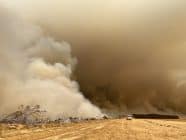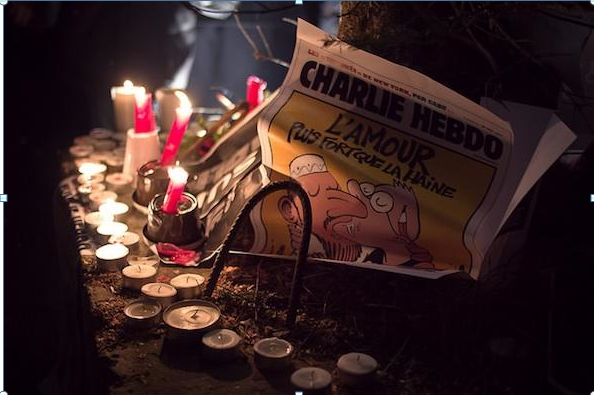Journalists are getting frustrated with trying to persuade editors to let them cover stories they feel passionately about. Journalist Ido Liven describes a new, crowdsourced project to cover this month’s UN climate summit in Warsaw.
Lengthy, complex political processes are difficult to report. Even the most dedicated journalist can struggle to keep readers, viewers, and indeed even editors engaged in a story that continues for years with no clear resolution. The debate on climate change is one of these topics, that swims on and off the news agenda. Conferences, summits and panels pass with no clear resolution. Editors lose interest and original reporting, if it was there in the first place, is pushed aside, most often only to be replaced by occasional news agency dispatches.
Last year’s climate conference in Doha offered some vivid evidence to this trend. In an analysis I decided to do at the time, I’ve looked into the coverage in 57 English-language news websites from 27 countries around the world (of which 13 were developed countries and 14 developing countries) over the last hours of the conference, arguably the crescendo of the summit, or at least its media coverage.
Only 20 of the 67 news pieces I spotted were in fact original copy. The majority, 39 of the reports, came from news agencies – and predominantly AFP (the rest were either syndicated stories or unattributed news agency materials).
The implications of this dependency on no more than four Western news agencies remain largely overlooked. For one, while maintaining some of the most stringent (Western) journalistic standards, these are not necessarily consistent with journalistic, cultural and political contexts in other parts of the world.
In this case, all three main wires had a clear emphasis on the U.S. And, notably, with the exception of a few government officials from vulnerable countries (such as the Alliance of Small Island States and the group of the Least Developed Countries), the most prominent speakers cited were Western speakers talking about these communities, rather than members of these very communities. Confined to chronicling the negotiations in Doha, AFP dispatches in particular lacked an analytical approach or a global perspective.
And there’s more to it. The fact that 20 stories were original does not necessarily mean that their authors were actually in Doha. It seems that even in western Europe, where media could possibly afford to send their correspondents to attend the UN conference, few actually do and instead resort to reporting on the talks from their desks. And it would be fair to assume that the UN climate summit in Warsaw this month will not see more media outlets represented than its predecessors.
At Warsaw’s COP-19 we want to fill the gap.
An international collective of 16 journalists from 13 different countries have set out to run a live blog that will blend reports on the talks from the Warsaw summit with local perspectives from around the globe. We call it the Climate News Mosaic (CNM).
On this live blog we will be posting snippets of the reporting we will each do for our media. For example, we may have a short video from a plenary session in Warsaw, a photo from a rally in San Francisco, a soundbite from a press conference in Nairobi, a quote from an interview with an Italian scholar. We will also be using inputs from overseas peers in our stories.
The live blog will run on an open-source platform developed by Sourcefabric and donated to the project. It will be hosted on the website of the Earth Journalism Network and it is also offered pro bono to any media outlet that wishes to use it on their sites, to complement their own coverage of the climate summit..
Once launched, the live blog will be open for any journalist and any media to use, to either take individual posts or simply embed the entire live blog on their site. Editors will also be welcome to commission stories from the project’s contributors.
The group formed five months ago and began fundraising to allow some journalists to travel to Warsaw to cover the talks. A month-long crowdfunding campaign reached its target of $6000. This money will cover the cost of bringing three members of the group – from Italy, Costa Rica and myself from Israel – to Warsaw, to moderate the live blog throughout the summit and to report it.
This is a non-profit venture, and team members have all been engaged in designing and running it over the past months voluntarily.
Ultimately, by linking and exchanging local insights we believe the Climate News Mosaic can facilitate the kind of transboundary collaboration that the world’s policymakers have so far failed to forge. By experimenting with a ‘glocal’ outlook we seek to encourage original reporting and expand the scope of climate journalism to reflect today’s interconnected and interdependent world and the truly global nature of the unfolding climate crisis.
Photo Credit: CGIAR Climate / Flickr Cc
Tags: climate change, climate change mosaic, climate change reporting, CNM, original reporting














































